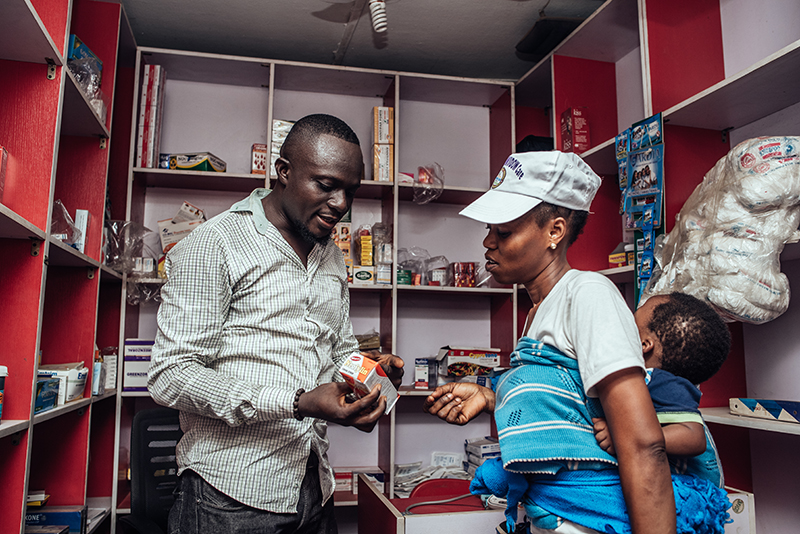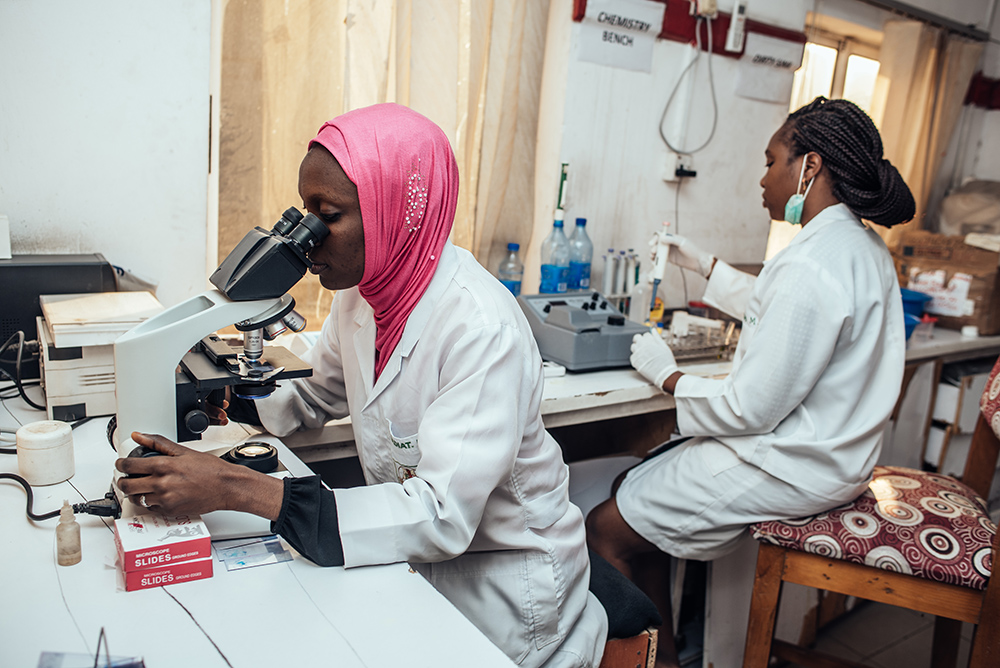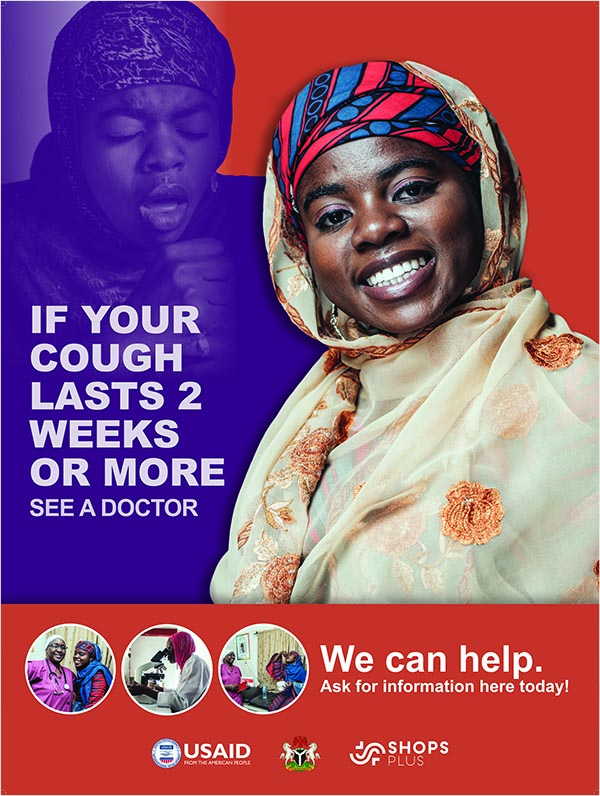Increasing TB case detection through the private health sector

In Nigeria, private health providers are critical sources of health care, accounting for over 60 percent of care provision in Nigeria. When sick, individuals often visit a patent and proprietary medicine vendor (PPMV) or community pharmacy for over-the-counter medications. Some of these individuals will go to labs for diagnostic tests, and others will seek care at a private clinical facility in their neighborhood. That’s why SHOPS Plus is working to increase the availability of and access to tuberculosis (TB) services in the private health sector in Lagos and Kano states, which both have a high burden of TB and high levels of private sector activity.
The project established networks of private providers from different types of outlets (PPMVs, pharmacies, labs, and clinical facilities) and trained them to detect, diagnose, follow up, and treat TB. Providers at each of the networked facilities screen clients for TB and refer them to diagnostic and treatment services within their facility or within their network. By establishing these linkages, providers who would usually work alone can collaborate with one another more efficiently and sustainably.
Providing a critical new service

Nura Lawan is the director of I&E Laboratory located in Kano state. His facility is one of 31 labs engaged by the project. Prior to the SHOPS Plus TB program, I&E Lab was not involved in TB screening and did not perform TB diagnostic tests. SHOPS Plus trained the staff of I&E Lab, which now conducts free acid-fast bacilli (AFB) tests for TB, using reagents provided at no cost by the Kano State TB and Leprosy Control Program. The lab receives samples from walk-in patients, patients visiting other facilities within the lab’s network, and patients who had samples collected by providers during outreach activities organized by the networked PPMVs, clinical facilities, local government area TB and leprosy supervisors, and project network officers.
“Before now, we did not carry out AFB tests,” Lawan explained. “Now we do because of the SHOPS Plus project. We now screen our walk-in patients. Most of our patients come with specific test requests, and as an addition, we screen them for TB and run AFB microscopy for the presumptive cases. In January, we diagnosed 20 TB cases, 15 from samples submitted by network officers from outreaches in communities and five from our walk-in clients.”
According to Lawan, the outreach held in January brought more than 80 samples, which emphasizes the importance of these activities.
Saving the lives of people in the community

Laure Haladu is currently receiving TB treatment. She lives in Fagoji, a remote community in Kano that is hard to get to due to bad roads. There is a high positivity rate for TB in this area, which is why a SHOPS Plus network officer organized an outreach activity in Fagoji to raise awareness and screen for TB in partnership with the Warawa local government area TB and leprosy supervisor, and a SHOPS Plus PPMV and clinical facility. During the outreach activity in her community, a networked provider screened Haladu for TB and took a sample of sputum for diagnosis.
"I used to cough very dry cough,” Haladu explained. “If I start coughing, it is distressing, and I can’t eat until it is subsided. I am happy for the TB test they conducted on me. I am taking my medicine, and I will continue for the length of period I am asked to do so. If not for the outreach, I would still be coughing.”
Through the collective efforts of private health providers, like Lawan, the SHOPS Plus networks are improving and saving the lives of people in their communities by detecting and treating TB.
Learn more about our work in Nigeria.